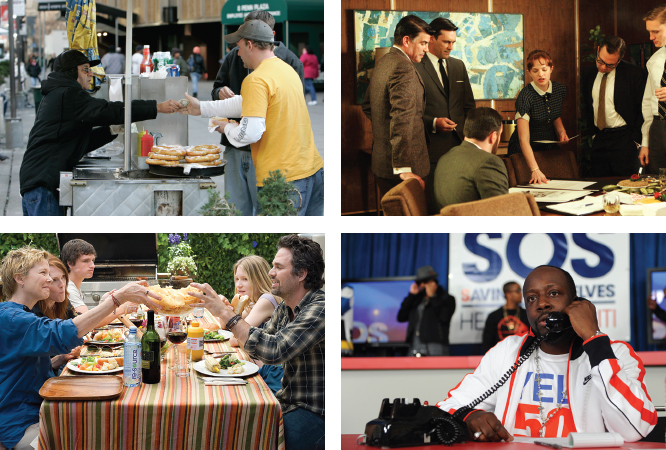Managing Relationships
All communication “works” (or not) within the context of relationships—the interconnections between two or more people. As mentioned earlier, communication allows us to express affiliation, and that can certainly be important in relationships. But relationships involve more than just affiliation—such as how intimately we get to know one another or how we handle conflict (as we’ll see in Chapters 7 and 8). We need effective communication to be able to manage these aspects of our relationships.

CONTESTANTS IN DEMANDING COMPETITIONS such as The Amazing Race know that it would be impossible to achieve goals without cooperation and clear communication. Heather Wines/CBS via Getty Images
Relationships also involve interdependence, meaning that what we do affects others and what others do affects us. For example, Jamie flips burgers to get a paycheck to help pay for college—that’s her goal. Her boss depends on Jamie to do her job well and keep the business profitable. And the customers, who just want an inexpensive and quick lunch, depend on both of them. Jamie, the boss, and the lunch customers are interdependent. Jamie and her boss must communicate to get along well and yet keep their relationship professional. Similarly, Jamie and her boss use communication to establish a trusting and loyal relationship with their customers without getting to know each of them on a personal level.
Communication is also important for managing relationships over time. Perhaps you made a best friend in kindergarten and you and he have remained close despite physical distance and the introduction of new friends and romantic partners into the mix. Verbal and nonverbal behaviors (see Chapters 3 and 4) likely had a big role in maintaining this relationship: You video chat with your friend once a month, keep up with each other on Facebook, and text him on his birthday, reinforcing the relationship with laughs and words of encouragement. You’ve also likely lost friendships as time has passed. Perhaps you broke up with your high school sweetheart when the two of you went to separate colleges. Your phone calls and visits became less frequent and—when you did speak—you found your communication uncomfortable and strained. The kinds of verbal and nonverbal relational “work” you do in managing relationships may signal their health or demise, revealing how communication functions to establish and maintain your relationships happily or unhappily.

ALL COMMUNICATION RELATIONSHIPS, whether fleeting like a fund-raiser’s exchange with a donor or more lasting like a familial relationship, involve interdependence. (top left) © JoeFoxNewYork/Alamy; (top right) Carin Baer/© AMC/ Courtesy: Everett Collection; (bottom left) © Focus Features/Courtesy Everett Collection; (bottom right) Kevin Mazur/Wireimage/Getty Images
AND YOU?
Question
Have you ever been in a relationship in which you liked someone but at times felt a bit disconnected from the person? What messages did the person send (or not send) that gave you this feeling? What did you do to try to reestablish the connection?

